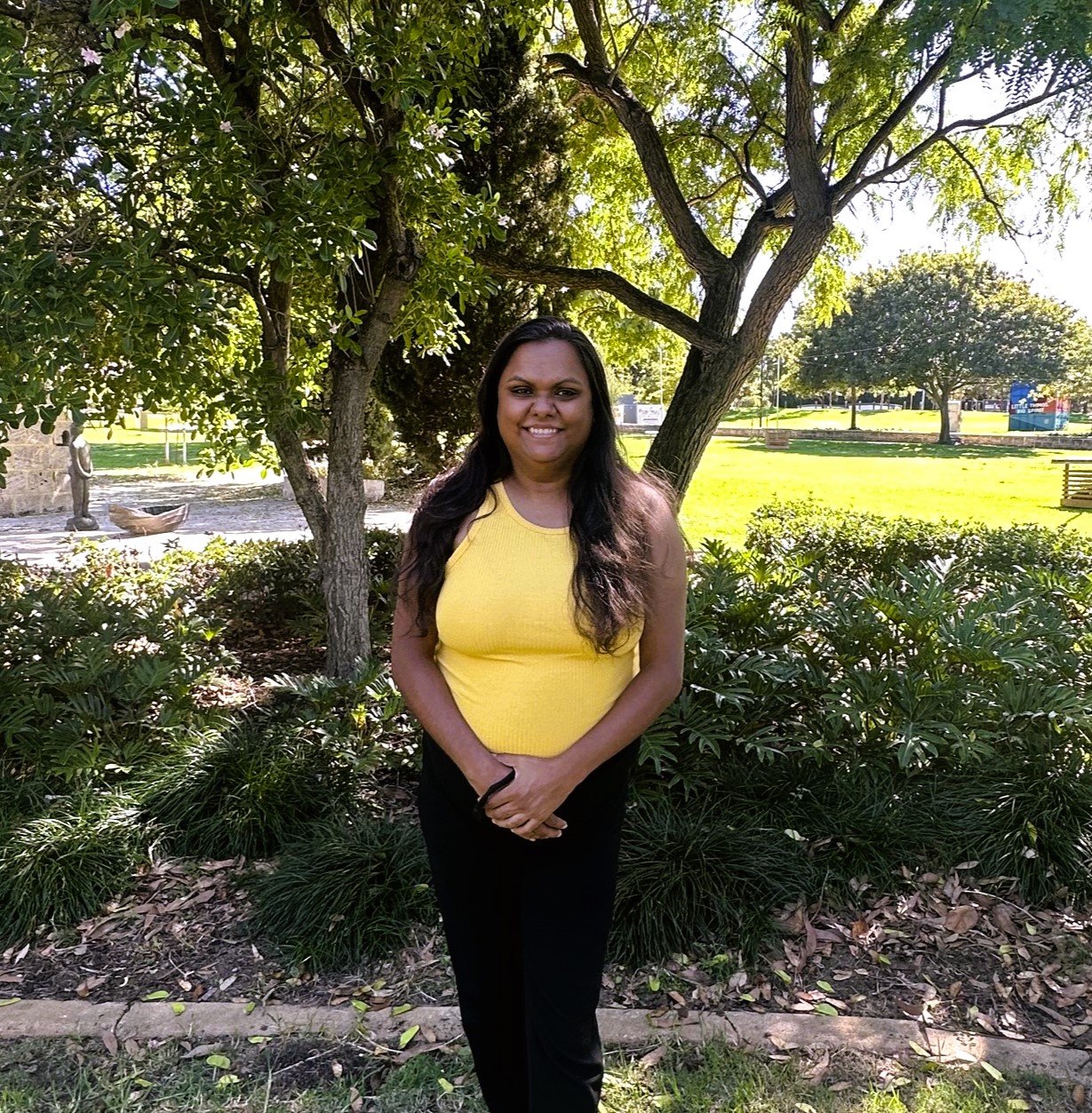Like many people at Diabetes WA, SARAH KICKETT, our new Aboriginal health coordinator, has family experience of diabetes and brings this knowledge to work that takes her all over the state.
Having family members with diabetes means I have seen firsthand the emotional and financial impact of a diagnosis. Emotionally it’s hard because when someone has diabetes they want to go out and live life and have fun, but in their head they know they have to take it easy.
For some people there’s the added impact of being away from Country when travelling to hospital appointments – for example if you’re travelling from up north to down south, it can be quite isolated.
Financially it can also have a huge impact, even with support. There are the costs of travel, appointments and so on that all add up, as well as more serious costs. For example, if you get an amputation, it will cost thousands for physio and equipment, and not everything is covered.
With three family members all diagnosed with type 2 diabetes I had already learned a lot about diabetes, and it’s a big thing in our Aboriginal culture. When I started training for my Aboriginal Health Practitioner qualification I did a two-week skills course at Diabetes WA. Soon afterwards, an opportunity for a full-time health practitioner came up. I got the job and officially started as an Aboriginal health coordinator here last year.
Everyone’s different in how they take in information, but I prefer hands-on learning with demonstrations and showing people things in a practical way.
Since joining Diabetes WA, I have learned a lot more. I knew that there was type 1 and type 2 diabetes, but I didn’t know there was gestational diabetes, prediabetes and type 3.
A typical week for me is a mix of being in the office organising events and being out and about. Our Aboriginal health team travels up north and down south to more remote areas where they don’t get as much support. We deliver clinics and build awareness of diabetes at community events, and we develop Aboriginal health resources such as our popular Tucker Plate. In May we will travel to Melbourne to meet up with other Aboriginal healthcare professionals from around Australia.
The courses we deliver include the Diabetes Yarning course and DESY, which is culturally adapted from our DESMOND (Diabetes Education and Self-Management for Ongoing and Newly Diagnosed) program. We go out into the community and meet people with diabetes in groups, get to know them and talk about diet and putting together balanced meals.
Recently Kath and I travelled down to Albany for the Binar Futures basketball competition, where around 700 Aboriginal kids came along with their families and competed in more than 100 teams. As well as the basketball, there was a health embassy where kids could come along with their parents and grandparents to learn from us. We were teaching about the sugar in food and showing kids, for example, that there are nine teaspoons of sugar in a cup of cooked pasta, which surprised a lot of them.
Everyone’s different in how they take in information, but I prefer hands-on learning with demonstrations and showing people things in a practical way.
This is a great area to work in. I was fortunate to go through the AHP course when it was fee-free, and it taught me a lot. Now that I’ve graduated, I am working here and sharing information about diabetes with my community.
Looking forward, I would like to see more people attending our events so we can get across the message about diabetes and what the risks are for not managing it properly. It’s also about letting people know more about how they can look after themselves and passing that awareness down through to the younger people.





